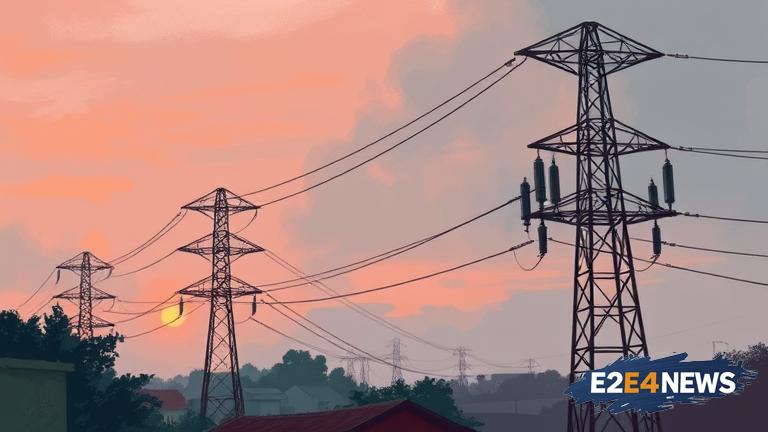A recent report has revealed that the Nigerian government is planning to implement a significant hike in electricity tariffs across the country. The proposed increase is expected to have a devastating impact on residents, particularly in the northeastern region, who are already struggling to make ends meet. The tariff hike is part of a broader effort to reform the country’s power sector, which has been plagued by inefficiencies and corruption. However, critics argue that the move will only serve to further exacerbate the economic hardships faced by ordinary Nigerians. The northeastern region, which has been ravaged by insurgency and poverty, will be hit the hardest by the tariff hike. Residents in the region are already struggling to access basic necessities like electricity, and the proposed increase will only make it more difficult for them to afford. The hike is expected to affect not only households but also businesses, which will be forced to absorb the increased costs or pass them on to consumers. This could have a ripple effect on the entire economy, leading to higher prices for goods and services. The Nigerian government has argued that the tariff hike is necessary to attract investment in the power sector and improve the quality of service. However, many Nigerians are skeptical of this claim, pointing out that previous increases have not led to any significant improvements. Instead, they argue that the hike will only serve to line the pockets of corrupt officials and private companies. The proposed tariff hike has sparked widespread outrage and protests across the country, with many calling for the government to reconsider its decision. The Nigerian Labor Congress has threatened to embark on a nationwide strike if the hike is implemented, citing the devastating impact it will have on workers and their families. As the debate rages on, one thing is clear: the proposed electricity tariff hike has the potential to exacerbate the already dire economic situation in Nigeria, particularly in the northeastern region. The government must carefully consider the implications of its decision and explore alternative solutions that do not place an undue burden on ordinary Nigerians. Furthermore, the government should prioritize investments in renewable energy and grid expansion to improve the overall efficiency and reliability of the power sector. Additionally, measures should be put in place to protect vulnerable households and businesses from the impact of the tariff hike. The international community should also take notice of the situation and offer support to Nigeria as it navigates this challenging period. Ultimately, the fate of Nigeria’s power sector and the well-being of its citizens hang in the balance, and it is imperative that the government makes an informed decision that prioritizes the needs of its people.
